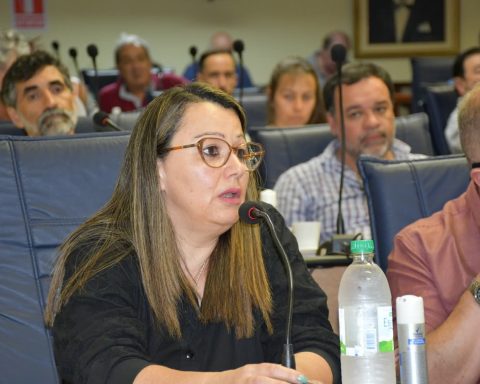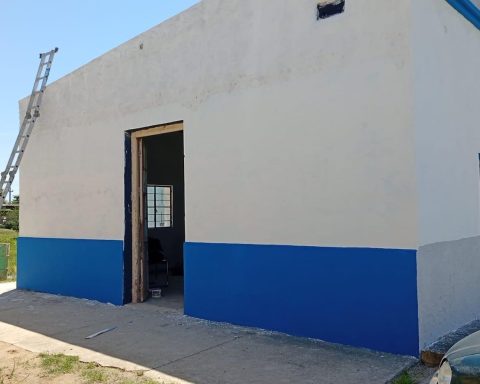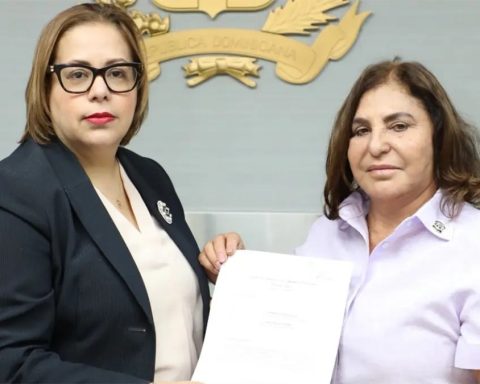The water quality of SBI it has become a source of attention in recent weeks, as well as political and governmental discussions. The levels of reserves reached historical minimum levels due to the drought that the country has been going through for the last three years.
This forced OSE to resort to other saltier water sources, which caused an increase –first– in sodium and chloride levels, but then also in other elements, such as trihalomethanes. The latter are linked to the disinfection process that has to be carried out.
When the first increase was known, around May, OSE argued that the new levels would imply changes only at the sensory level, such as taste.
But the latest rises in chlorides and sodiums led to greater concern among experts. Especially since other effects began to be seen in the water, such as the increase in trihalomethanes, the presence of coliforms and iron above what is allowed. What are each of these elements and what effects do they have?
chlorides and sodium
The original standard by which OSE is governed sets the maximum for sodium at 200 mg/l and chlorides at 250 mg/l. Currently, exceptionally, the MSP authorized the amounts to be 440 mg/ and 720 mg/l, respectively. From OSE and the Ministry of Public Health, there was talk that the water would be saltier but that the general population would not suffer health risks. People with kidney failure, infants and hypertensives were urged to reduce the consumption of salt and its derivatives.
Both chlorides and sodium are components found in water. The chemical definition of chloride is that it is the lowest oxidation state of chlorine. Sodium, an element present in everyday life, is also found in water, because it comes from soils and rocks.
But, since it did not rain and reserves continue to fall, OSE is once again requesting an exceptional increase. This would allow stretch Paso Severino reserves until mid-July and would cause the MSP had to authorize the new maximum for chlorides to become 1,700 milligrams per liter while that of sodium is 988 milligrams per liter.
The MSP does not authorize this because the water would stop being drinkable. The World Health Organization (WHO) recommends a maximum of 5 grams of salt per day, which would mean 2 grams of sodium. And with this increase, drinking 2 liters of water would be exceeding the limits recommended by the WHO.
Trihalomethanes
The presence of trihalomethanes has a different origin. They are a by-product that arises from the chlorine disinfection of treated water for human consumption. He Ministry of Public Health authorized OSE increased the allowed index of this item from 1 to 5.
The coordinator of the Water Analysis Unit of the faculty, Alexandra Sixtosaid to The Observer what should be avoid exposure to trihalomethanes because “they are classified by the International Agency for Research on Cancer (IARC) as class 2B possible carcinogens.
There are four types of trihalomethanes that are studied in water. bromoform, chloroform, bromodichloromethane and dibromochloromethane. All four have a different maximum allowed value and an index is made with these maximum values, whose maximum value was 1. With this authorization, the maximum value became 5.
Is it harmful to health to be exposed to trihalomethanes? Yes, although in the long term, specialists reported to The Observer. The specialist in clinical toxicology Alba Negrín explained that the Trihalomethanes can be absorbed by three routes: the oral -by drinking the water-, the respiratory -by inhaling the water vapor- and, to a lesser extent, through the skin. Negrín said that the airway is one of the “most important” and suggested ventilate the bathroom during the shower or lower the water temperature so that less steam comes out.
In any case, the specialist clarified that the Trihalomethanes may have carcinogenic effects when people are exposed to “very long term, I would say decades” and recalled that until 2011 Uruguay did not measure the amount of trihalomethanes in OSE water, therefore, until that year the population was exposed to that compound although it is not known to what extent. “There is no going back on that,” Negrín said.
That is why the Faculty of Chemistry recommended “take short baths and if possible in ventilated sites to decrease the inhalation of these compounds.” In turn, “boil water for three to five minutes before cookingsince the trihalomethanes are largely removed during boiling“.
Coliforms
The latest report from the Energy and Water Services Regulatory Unit (Ursea) recorded that there were coliforms in one of the pumping lines.
Coliforms are a group of bacteria that often serve to define the sanitary quality of water and food.
The way to measure is only with the presence or absence indicator, without any numerical value. That Ddetermines that the mere presence of coliforms leads to the fact that the water can generate some difficulty in stomach health but that will depend on the personexplained Sixto to The Observer. That is why in that pumping line you must make sure that there are no coliforms and measure again to verify that they are no longer there.
Iron
On the other hand, the presence of elevated iron above what was allowed also occurred in the last Ursea report in some pumping lines. The maximum value allowed is 0.3 mg/L and in three pumping lines it was above. According to the UNIT 833 standard on which they are based to establish the maximum allowed values, it says that is based on sensory parameters and not health. As Sixto told El Observerthe presence of a greater iron is noted in the color, when the water it comes out more “yellowish”.














